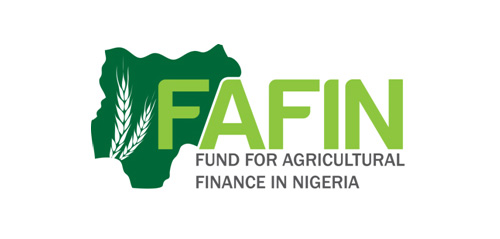
The Managing Partner of Sahel Capital, a leading fund manager and advisory firm, which is also the Fund manager for the Fund for Agricultural Finance in Nigeria (FAFIN), an innovative agriculture focused investment fund, launched by President Goodluck Jonathan, Mezuo Nwuneli, has expressed optimism that the fund is capable of meeting the funding challenge of small-holder SMEs farmers.
He explained that FAFIN is an innovative agriculture-focused investment fund that provides tailored capital and technical assistance solutions to commercially-viable small and medium-sized enterprises (SMEs) and intermediaries across the agricultural sector in Nigeria, noting that FAFIN’s investments will be focused on processors; logistics and storage companies, producers, input providers, as well as a secondary focus on intermediaries that extend financing to agricultural SMEs and farmers.
He said his company is committed to ensuring that it selects companies in which to invest that will have development impact within their respective value chains, as well as provide commercial financial returns to FAFIN’s investors, saying that the company will be methodological in its approach to evaluating investments.
He said there are two key reasons for the choice of the target group, explaining that the first is that access to finance is one of the most severe challenges cited by private sector agribusiness operators. He said this challenge is more keenly felt by SMEs and smallholder farmers who account for over 84 percent of the estimated $6.5 billion demand for capital
“However, this need is barely being met by commercial banks as an estimated 5% of their loan portfolio is comprised of companies within the agricultural sector (considering that the sector accounts for 22% of national GDP), the majority of which are loans to large agribusinesses and not to SMEs or smallholder farmers where the need is greatest.
“The second is that SMEs form the backbone of Nigeria’s economy, and employ more people combined than the recognizable large blue-chip companies that we are all aware of. Agriculture and SMEs in particular is the engine that will drive Nigeria’s growth over the long-term and it is critical to ensure that they have the financing they need to transform Nigeria’s economy,” he said.
On efforts at creating awareness for the project, he said apart from the fact that the launch of the program attracted the media, which gave it adequate publicity, different members of Sahel Capital’s team have also been panelists or speakers at key agribusiness and private equity conferences over the past several months discussing FAFIN and investment opportunities within the sector.
He said the company also has a dedicated website where interested companies can access information on the fund, including contact details.
“As we invest in companies, we also intend to publicly announce the investments, which will also be used as case studies on the types of companies which emerged successfully through our due diligence and investment process. We are quite excited with FAFIN’s first investment, which was recently concluded, in a dairy company in Kano – L&Z Integrated Farms,” he said.
On interest rate on loans, he explained that FAFIN provides primarily equity and quasi-equity capital to SMEs, and as such is not structured to provide loans directly to farmers, explaining that FAFIN is able to invest in microfinance banks that are focused on expanding their rural and agricultural lending or to invest in processors seeking to build out-grower schemes. These intermediaries, he said, would then structure lending as appropriate to farmers. “A key component of FAFIN is its technical assistance facility, which would allow us to provide grant funding for capacity building, training, and other technical support to the microfinance banks in which we invest to ensure that loans to farmers are appropriately structured.
To assess FAFIN funds, Nwuneli, said the companies FAFIN seeks to invest in are expected to have a track record of strong performance; significant growth potential; competent and strong management team; and strong governance and ethical business practices, noting that there is also the need to be a clear path for FAFIN to exit the investment and return capital to its investors over a 5 – 7 year period.
“FAFIN is focused on providing growth and expansion capital to existing SMEs, and is not focused on start-up companies or Greenfields. We can only consider early stage investments where the promoters and/or management team have demonstrated sector expertise by previously running companies within the same sector successfully.
“As part of our evaluation process, we perform on-site due diligence on the company, and engage in extensive discussions and meetings with the management team so that we can better understand the business dynamics, the growth strategy and where we can provide required support,” he explained.
He noted that the current investors in FAFIN include the Ministry of Finance Incorporated (holding FMARD’s stake, as well as the matching investment from KfW Development Bank), Nigeria Sovereign Investment Authority, and Sahel Capital itself. “FAFIN is structured so that although anchored by its sponsors, it is able to mobilize capital from local and international private sector institutional investors. We are currently in conversations with a number of institutional investors who we expect will also invest in FAFIN during the course of the year.
“It is important to note that FAFIN is structured following best practice, as a 10-year private equity fund. We are expected to deploy the capital into investments within the first 5-years, to work in partnership with the founders/promoters to build their companies and to eventually exit the investments during the second 5-year period. Our success at making good investments and returning capital to investors with an attractive return will be the sole determining factor on ensuring there is a FAFIN II,” he explained.
Source: All Africa
